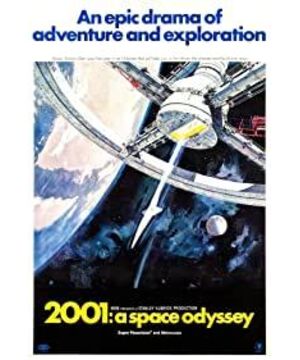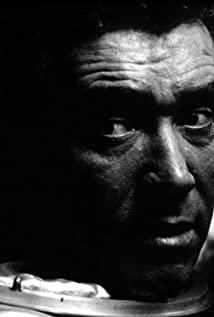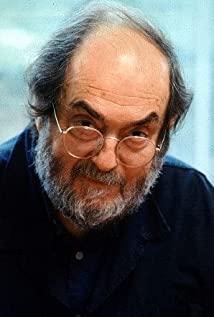The apes trembling and stroking the black stele are the initial form and opportunity of surprise for human beings; the bones thrown into the sky are instantly transformed into space vehicles in the application of montage techniques, which is an amazing development; at the end of the film, it evolved into The astronauts of Son of the Universe look at the sky with the pure eyes of a child, which is undoubtedly an amazing future and an amazing new beginning. And the film's advancing perspective runs through Nietzsche's philosophy of the superhuman, a well-known conclusion.
My perception of Kubrick's great work also stemmed from a small surprise. In that year, I bought the genuine VCD of "2001 A Space Odyssey" on Joyo.com. After turning on the disc player and TV, there was a long black screen and silence on the screen, which made me think there was something wrong with the disc or the disc player. The initial panic passed, the movie began, and the dawn of mankind came... Later, I found out that there was more than one such silence in this movie, originally to give the audience time to go to the toilet. However, it is unexpected that such a silence fits so well with the grand and solemn style of the film.
Kubrick's ambition is fully displayed through the time and space in the film - from ape to the son of the universe, he constructed a miniature history of human development in almost two hours. Many directors are obsessed with creating moving stories and creating full-fledged characters. They are traditional craftsmen in the film industry. However, Kubrick is undoubtedly not such a craftsman. In this film, the grand time and space he spanned is almost impossible to grasp, the cosmic theme he brewed transcends the ordinary life of ordinary people, and his narrative is obscure and incomprehensible, he simply refuses to understand ——Before this film, I have never seen a film with so little dialogue time. In this unique way (barrier setting), Kubrick accomplishes his astonishing exploration of this universe, whose significance in the history of cinema is like those three famous questions that Gauguin posed through his Tahiti-themed paintings : "Who are we? Where do we come from? Where do we go?" Judging from the original English title of the film (A Space Odessy), the tribute to Homer's epic and the theme of the human homeland is indeed the original meaning of the title. Kubrick's work disdains and transcends the storyline itself because Odysseus' journey of homecoming is magnified to a cosmic scale.
From the audience's point of view, if we can temporarily abandon the viewing stereotypes brought about by "story" or "understanding", we will find that the aesthetic experience brought by surprise itself has far exceeded the past. Kubrick omits a lot of dialogue in the film, and only uses the lens itself to speak: the dawn of mankind, wild and magnificent; the vast space, mysterious and solemn; the newborn baby, pure and curious. The lens itself is so beautiful, the lens itself is the purpose of watching the movie, the silence and slow advancement of the lens is the rhythm of the epic! Not to mention the famous symphonies (Thus Spoke Zarathustra, The Blue Danube, etc.) Not to mention the many themes touched upon in the movie but not yet published, such as the evolution of human beings, the insignificance of man and the greatness of the universe, the ultimate meaning of the wisdom of the universe, the prospect and future of artificial intelligence! You know it or you don't, Kubrick is there. Therefore, for this movie, what we should refresh is the understanding of the concept of "movie" itself - you are amazed and puzzled, and because of suspension, you can obtain a higher level (philosophical, but also aesthetics) ) the amazement and viewing pleasure.
In 1968, the film was released; in 1969, human beings landed on the moon (which is also one of the plots in the film); in the 21st century, we are still discussing the problem of understanding this film, and we are full of emotion. This probably shows that the film is not only ahead of its time, but also because of its amazing characteristics, it has crossed the era and left a long-term philosophical interest for pondering.
View more about 2001: A Space Odyssey reviews











